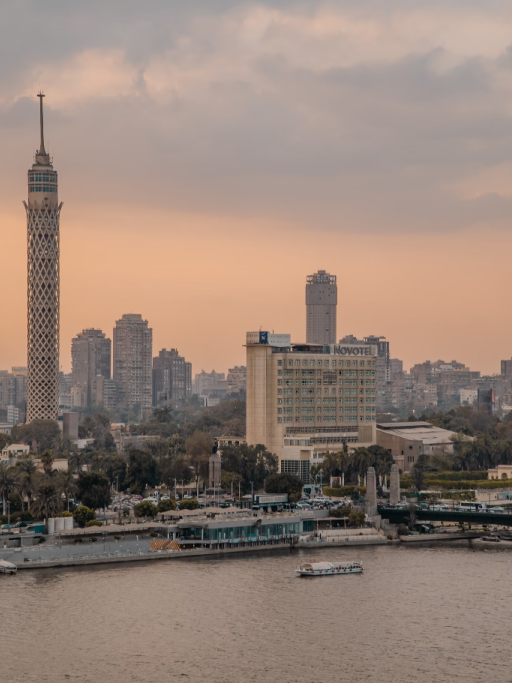Working Areas
Partnership Management
Asset Management
Customer Relations
Emergency and Risk Management
Governance & Institutional Relations
Human Resources/ Organizational Development
Production Processes & Service Quality & Water Safety (Drinking Water)
Service in Low-Income Areas
Organizations Involved
Bahir Dar Water Supply and Sewerage Service, Bahir Dar, Ethiopia — Lead Mentee
Helsinki Region Environmental Services HSY, Helsinki, Finland — Lead Mentor
VEI Dutch Water Operators
—
Supporting Org
Techical Support
The European Union
—
Funder
SDGs
6.1Universal and equitable access to safe and affordable drinking water for all
6.4Increased water-use efficiency and sustainable withdrawals and supply of freshwater
Project description
The WOP in Bahir Dar will focus on capacity building of Bahir Dar water utility for increased access to reliable and sustainable water supply and improved sanitation services.
Project main objectives
The objective of the WOP is to promote partnerships for systematic knowledge exchange to achieve improved availability and sustainable management of water and sanitation for all, capacity building among water and sanitation professionals, and contribute to Sustainable Development Goal 6.
To address the challenges described in chapter 2.2., the first steps will be to work on a combination of capacity building, process optimization, organizational structure, implementation of new (IT) technologies and plan development. Although there is a very long list for improvement, the four topics below are regarded as the most urgent to maintain and improve WASH service delivery in the short to medium term:
Leadership and management capacity
Apart from a strong GM, the management practices and culture of performance are weak. To improve on these aspects, two types of training will be conducted:
- Managerial practices
- Field Level Leadership (FLL).
The managerial practices include tools/approaches for more effective/efficient management, including training on utility planning (business planning), management, and performance monitoring.
FLL puts the manager as an individual at a central place and elaborates on personal development and how the individual can contribute to BWSS as well as on empowering the staff. For this purpose, the experienced trainers from the water utility of Addis Ababa will be deployed, who implemented a similar program.
Management and employee involvement rely on good internal communication, for which instruments and facilities must be available. To this end, improved internal communication facilities will be realized in this WOP (internet, computers). This is also supportive to the data collection/analysis, required in the below activities.
To learn from other utilities in the field of managerial practices, a visit to Finland/Netherlands will be planned as well as a visit to Addis Ababa regarding FLL.
Revenue enhancement
As mentioned in chapter 2.2., the cost recovery ratio is too low to implement core O&M functions in BWSS. Therefore the following activities are proposed:
- Review billing processes and propose improvements;
- Analysis of customer database and meter replacement strategy;
- Update customer database: house-to-house survey, design/implement process for regular updating customer database.
NRW reduction
Another factor that prohibits establishing sustainable water services is the high NRW percentage, leading to wastage of water (physical losses) and billing potential (apparent losses). A NRW reduction plan will be developed based on:
- Top-down assessments: customer database analysis (see above), burst analysis, speed-to-repair analysis and, pressure management; all feeding into a utility-wide water balance (in easy calc).
- Bottom-up assessment by creating one DMA and, amongst others perform night flow measurements.
To address the challenges described in chapter 2.2., the first steps will be to work on a combination of capacity building, process optimization, organizational structure, implementation of new (IT) technologies and plan development. Although there is a very long list for improvement, the four topics below are regarded as the most urgent to maintain and improve WASH service delivery in the short to medium term:
Leadership and management capacity
Apart from a strong GM, the management practices and culture of performance are weak. To improve on these aspects, two types of training will be conducted:
- Managerial practices
- Field Level Leadership (FLL).
The managerial practices include tools/approaches for more effective/efficient management, including training on utility planning (business planning), management, and performance monitoring.
FLL puts the manager as an individual at a central place and elaborates on personal development and how the individual can contribute to BWSS as well as on empowering the staff. For this purpose, the experienced trainers from the water utility of Addis Ababa will be deployed, who implemented a similar program.
Management and employee involvement rely on good internal communication, for which instruments and facilities must be available. To this end, improved internal communication facilities will be realized in this WOP (internet, computers). This is also supportive to the data collection/analysis, required in the below activities.
To learn from other utilities in the field of managerial practices, a visit to Finland/Netherlands will be planned as well as a visit to Addis Ababa regarding FLL.
Revenue enhancement
As mentioned in chapter 2.2., the cost recovery ratio is too low to implement core O&M functions in BWSS. Therefore the following activities are proposed:
- Review billing processes and propose improvements;
- Analysis of customer database and meter replacement strategy;
- Update customer database: house-to-house survey, design/implement process for regular updating customer database.
NRW reduction
Another factor that prohibits establishing sustainable water services is the high NRW percentage, leading to wastage of water (physical losses) and billing potential (apparent losses). A NRW reduction plan will be developed based on:
- Top-down assessments: customer database analysis (see above), burst analysis, speed-to-repair analysis and, pressure management; all feeding into a utility-wide water balance (in easy calc).
- Bottom-up assessment by creating one DMA and, amongst others perform night flow measurements.
